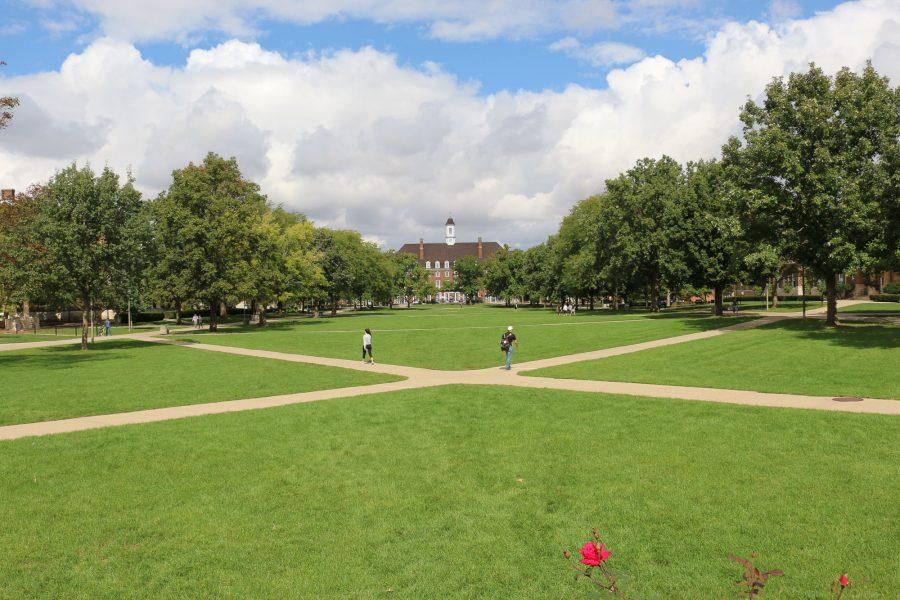University unable to expel student sex offenders
The Main Quad on Sunday, Oct 2, 2016.
Nov 14, 2016
Even though sexual assaults occur semi-frequently and remains a concern on campus, many students are not aware of the consequences for a student who sexually assaults someone.
According to the University’s student code, any student who is found guilty of sexually assaulting another student cannot be expelled from the University.
“Expulsion is not actually an option at the University of Illinois. The Senate Committee has not included that among the possible sanctions,” said Justin Brown, associate dean of students and director of the Office for Student Conflict Resolution.
Instead of expulsion, students are dismissed from the University for a period of time. They then have the ability to petition to come back to school. While a student is on dismissal, they have to complete educational sanctions that can include talking to counselors or taking classes at another institution, Brown said.
“The student can petition to return to the University, they have to have completed all those educational sanctions before they are even granted a hearing,” he said.
Get The Daily Illini in your inbox!
If the student is allowed to return to the University, Brown said they are usually on probation.
“The point is not if you’ve done everything you automatically come back,” he said. “That is never the case. The committee has to be convinced that that person no longer presents a risk to our community, that they have learned from their time away.”
The dismissed person has the right to petition for return to the University as many times as they desire, but there are no guarantees they will ever be allowed to come back.
Although any student who has been sexually assaulted by another University student is allowed to open an investigation, Patricia Morey, director of the Women’s Resource Center, said that not all of them want to do so.
“It really depends, but I would say for the majority of students, they have some concerns about reporting,” she said. “We know that over 90 percent of sexual assaults are committed by someone known to the victim, and therefore he or she may be reluctant to report that.”
Brown said the University can respect the student’s decision to abstain from conducting an investigation, if that’s what the student wants.
However, Morey said that if the Title IX office decides they need to open an investigation because the assailant poses a risk to the campus, they can do so whether the student wants to or not.
“It makes sense on some level. But on the other hand, students are for the most part adults … and they have the right to determine if that’s the best recourse for them, which is where a program like ours comes into play,” she said.
For students who don’t wish to open an investigation, Morey said there are other resources available for them, such as the Women’s Resource Center and the Counseling Center.
“The Counseling Center as well as McKinley both provide counseling,” she said. “We provide short-term counseling, but they have additional resources through the Counseling Center and McKinley, and DRES … DRES also provides long-term counseling.”
Xuyang Ji, freshman in DGS, said she was surprised to hear that the University can’t expel students permanently.
“I feel like if people still want, they’re going to (commit sexual assault) for the second time,” she said. “Because they know they’re not going (to be) expelled forever.”
Brown said that although expulsion is not an option at the University, it is a decision that can be revisited at any time.
“Expulsion was not presented as an option because our system was focused on education as its primary goal,” he said. “So that expulsion of excluding a person at the outset doesn’t really give them an opportunity to come back and demonstrate that they really have learned or that they are a different person as a result of the experience.”
The current guidelines that the University follows were decided upon in Summer 2015, Brown said.
“We’re gonna provide every dismissed student with a possible pathway for returning, even if it’s a very difficult path, even if it’s one that they’re gonna struggle with and never be able to successfully complete,” he said.






